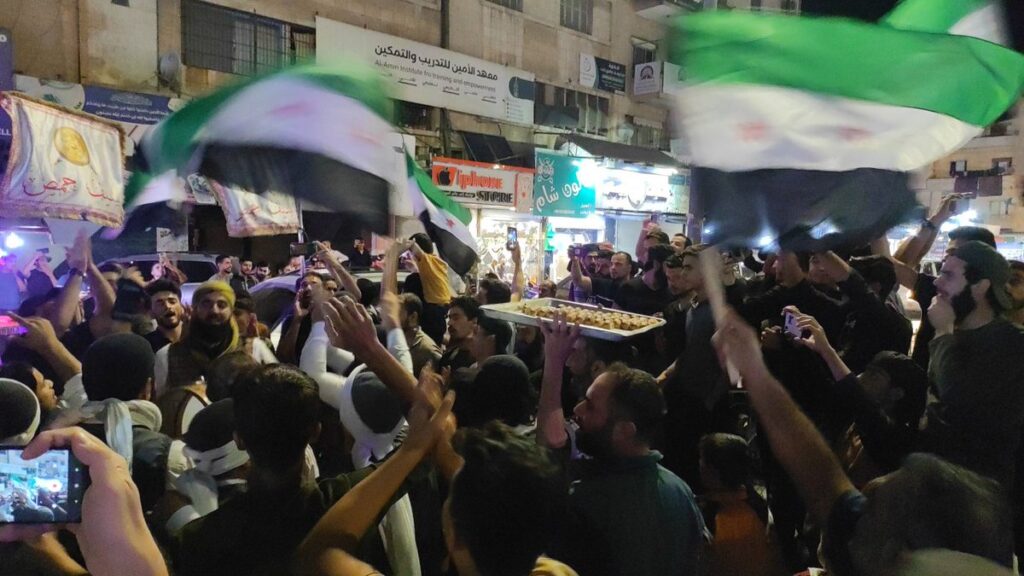FRESH AIR
The Syrian town that Hezbollah almost starved to death
October 16, 2024 | Alana Schetzer

Israel’s assassination of some of the most senior leaders of the Hezbollah terror group, including its chief, Hassan Nasrallah, was mourned by millions of Shi’ite Muslims and quietly celebrated by even larger numbers of Sunni Arabs.
But for one group of people in the small mountain town of Madaya in Syria, the elimination of Hezbollah’s senior leadership was especially sweet.
Madaya is located about 40km north-west of Syria’s capital, Damascus, and about 52km from the Lebanon border. Up-to-date information about the town is sorely lacking – we don’t even know how many people currently live there, given that the last census was conducted in 2004 (which put the population at 9,371).
One thing we do know about Madaya is that during the Syrian civil war it was the site of one of the terrorist group Hezbollah’s cruellest and most vicious attacks – an attack in which many people were starved to death.
Between July 2015 and April 2017, Madaya was besieged by Hezbollah.
Hezbollah sent thousands of its fighters from Lebanon to support Syrian dictator Bashar al-Assad in his battle to defeat anti-regime forces opposed to his authoritarian regime.
This campaign to suppress all political opposition to the Assad regime was characterised by widespread violence, including massacres, and inhuman acts of cruelty against civilians.
By October 2016, one million Syrians were actively under siege according to news reports and some 4.5 million were in need of humanitarian aid.
Hezbollah planted some 12,000 landmines around Madaya, and created 65 checkpoints manned by snipers to stop food, fuel and medicine being delivered to the town, and prevent residents from leaving.
According to survivor testimony, Hezbollah killed children, raped women, and buried people alive. An International Committee of the Red Cross worker described the townspeople as experiencing a “colossal level of suffering.”
Over the course of the 22 months of the siege, Madaya dissolved into a genuine hellscape for its inhabitants and those sheltering there, more than 20,000 at the time, as Madaya took in people from nearby villages who were attempting to escape the terrorist group.
Soon after the siege started, disease and infection including typhoid and meningitis broke out, but the town’s two doctors had nothing but the most basic supplies at just one field hospital. There was also a lack of access to clean water, electricity, and basic goods. At the time, Doctors Without Borders director of operations Brice de le Vingne described the town as an “open-air prison”. “There is no way in or out, leaving the people to die,” he said.
There were reports of starving residents resorting to eating cats and grass in order to stay alive, and desperate residents risked walking through the 12,000-strong minefield in search of food, many losing limbs or their lives in the process. Starving residents were described as “walking skeletons”.
And so, following news of attacks against thousands of Hezbollah terrorists in Lebanon and Syria via explosives hidden in their pagers and walkie talkies on Sept. 17 and 18, widely attributed to Israel, scores of Syrians openly celebrated the demise of those who had tortured and murdered their family, friends and neighbours. One video showed celebratory scenes, with a man handing out sweets, saying, “This is to mark the deaths of some, or many, of Iran’s party members in Lebanon (Hezbollah).” Another celebrating man says, “The pagers exploded. What great news. We Syrians aren’t used to hearing such good news.”
Syrian journalist Hadi al-Abdallah posted a video on X (Twitter), saying that Syrians opposed Hezbollah and viewed them as terrorists. “This video shows the bombing by Hezbollah forces on the city of al-Qusayr, filmed by Hezbollah’s own cameras. They’re proud of the crimes they’re committing.”
The pager and walkie-talkie attack was not the only incident that inspired open displays of celebration. Many Syrians took to social media to express their joy over the death of senior Hezbollah commander Hussein Ali Ghandour in a highly sophisticated Israeli airstrike in Beirut’s southern Dahiyeh district on Sept. 20. Syrian activist Ashakaki tweeted: “No one should ask the residents of Madaya why they are rejoicing today. When one of the murderers is gone, the world becomes better.”
Syrians also openly celebrated the death of long-time Hezbollah leader Hassan Nasrallah one week later, on Sept. 27, with fireworks and gunfire in the air. Ahmed al-Ali, who lost multiple friends to Hezbollah terrorists, described it as the “the most beautiful day of my life.”
Yasmine Muhammad said upon hearing of Nasrallah’s death, she felt an “overwhelming happiness that cannot be described.”
“I consider this revenge for the thousands of Syrians who were killed by Hezbollah, the main support of Bashar al-Assad. Hezbollah committed the most heinous massacres against Syrians, and it also participated in the starvation and displacement of thousands of Syrians.”
The starvation and displacement that Muhammad spoke of was a hallmark of Hezbollah’s siege warfare across Syria.
Today, while it has reduced in intensity, Syria’s ongoing civil war – now in its 14th year – is still not over. Tens of thousands of Iranian-backed Shi’ite terror operatives, including from Hezbollah, remain entrenched in Syria, forming part of Iran’s “Ring of Fire” around Israel that includes Yemen, Lebanon, Gaza and the West Bank (Judea and Samaria), Iran, Iraq, and Syria.
But as the reactions of many Syrians to Israel’s strikes against Hezbollah demonstrate, it is not just Israelis who have suffered as a result of Iran’s strategy of aggression and expansionism. And many Syrians, Lebanese and others, whether or not they are able to say so publicly, will be rooting for Israel to finish the job of demolishing Hezbollah which forms a central part of Iran’s “Ring of Fire”.
RELATED ARTICLES

US Middle East strategy amid regional instability: Dana Stroul at the Sydney Institute

Antisemitism in Australia after the Bondi Massacre: Arsen Ostrovsky at the Sydney Institute





















